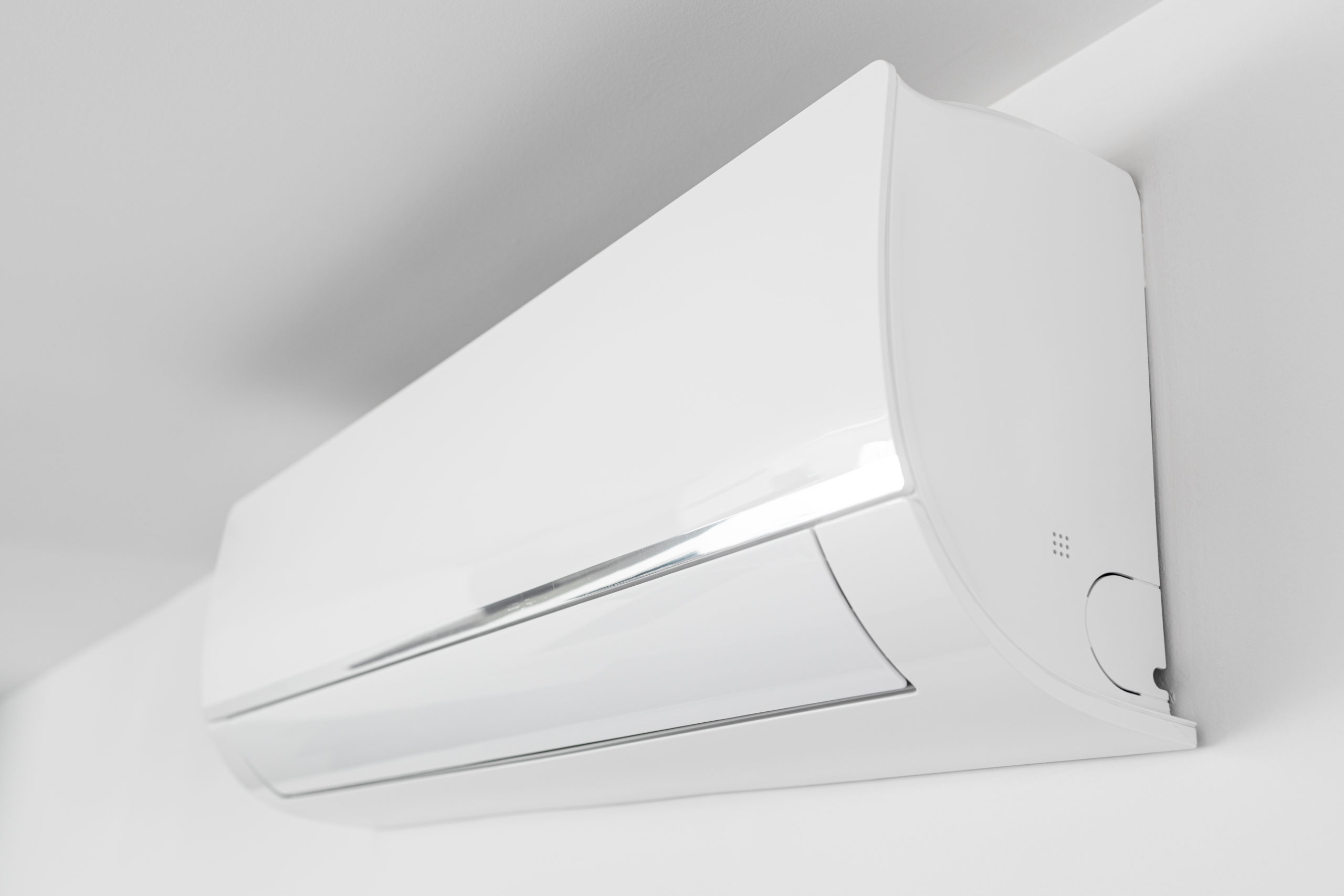Air conditioners have these little things called fuses that act like electrical circuit breakers. They’re designed to “blow” and shut off power before too much current damages expensive AC components like compressors or circuit boards. Basically, a fuse intentionally burns itself out to protect the rest of your system.
While that might save your AC unit from an electrical meltdown, it also leaves you stuck without cool air until that blown fuse gets swapped out. And just slapping in a new fuse without understanding why the old one blew could lead to hazards like electrical fires if you don’t fix the root problem first.
Before going all DIY handyman replacing that fuse yourself, you need to learn the common reasons units blow them in the first place. From wiring issues and overloaded circuits to failed parts drawing too many amps, there are some easy-to-spot warning signs. We’ll cover all the need-to-know troubleshooting tips to get your AC cooling again safely. Sometimes it’s best to call in a pro rather than keep blowing fuses repeatedly!

Understanding the Role of Fuses in Your AC System
Most homeowners know fuses play an important safety role in their air conditioning system’s operation. But beyond just “blowing out” to prevent electrical damage, these simple components actually act as your HVAC unit’s first line of defense against hazards like fire risks, short circuits, and compressor burnouts.
At its core, an air conditioner fuse is essentially just a metal wire or strip that melts when too much electrical current tries passing through it. This intentional “weak link” breaks the circuit before that electrical overload can wreak havoc on the rest of your AC’s expensive parts and refrigerant lines.
Fuses contain reactive elements like zinc, copper, or aluminum housed in protective non-conductive casings. When the amperage exceeds the fuse’s rated capacity, those interior elements literally disintegrate or melt through to create an open gap that kills power flow to the unit – hence the “blown fuse.”
While older HVAC setups utilized those glass, cylinder-shaped fuses you might remember from old household electronics, most modern AC systems rely on more compact cartridge or “blade” style fuses instead. These fuses get tucked away inside your condenser unit’s electrical panel or disconnect box where the power whipping through is at its most intense.
Some higher-end AC units even use current-limiting fuses called “polymeric” non-shorts. Rather than completely severing power like a standard fuse, these specialized components simply restrict electrical flow to low-resistance levels if an overload occurs. This safeguards sensitive electronics while still allowing the system to “limp” until the issue gets resolved.
No matter the specific style used, properly rated fuses matched to your AC’s electrical load play a pivotal role in protecting that expensive investment. Understanding what’s at stake when one blows makes promptly addressing the root cause a top priority!
Why Does My AC System Keep Blowing Fuses?
While replacing a blown air conditioning fuse is usually a pretty quick fix, that band aid solution starts wearing thin if you find yourself repeating the process every few days or weeks. A system constantly blowing fuses indicates an underlying issue requiring further investigation before you risk electrical fire hazards or costlier component failures.
Electrical Surges
One of the most common culprits behind nuking those little safety switches? Electrical surges and spikes overloading your AC’s circuit. These power disruptions can stem from lightning strikes, utility line issues, or even running too many high-draw appliances at once. The sudden voltage spike tries forcing more amperage through than the fuse can handle.
Faulty Wiring
Deteriorated, damaged or incorrectly sized wiring creating short circuits, ground faults, or arcing paths also frequently overwhelm AC fuses. Corrosion, exposed insulation, pests chewing through lines – anything compromising your system’s wiring integrity can allow dangerous electricity levels that blow fuses regularly.
Overworked Systems
As air conditioners age, their parts have to work harder and harder to operate efficiently. Once compressors, motors, and other components start degrading or failing outright, the increased electrical draw often maxes out those protective fuses. Essentially, the system is overworking itself into fuse overload territory.
Component Failures
Speaking of failing components, sometimes the fuse is just the unfortunate messenger delivering bad news about other breakdowns. Whether a shorted motor winding, seized compressor or blocked refrigerant lines, those types of internal meltdowns can instantly start drawing excessive amperage that fries a fuse.
The frustrating truth is fuses are designed to blow repeatedly if a persistent electrical hazard or part failure keeps overloading the circuit they protect. In those situations, fuses sacrificing themselves actually helps prevent even costlier damages! Rather than just swapping new ones in, you’ll need to diagnose and fix the underlying root issues.
Signs of a Blown HVAC Fuse
Of course, before you can start investigating why your AC’s fuses seem to have a suddenly short lifespan, you’ll need to confirm one has actually blown in the first place. Fortunately, these little safety components tend to announce their failure pretty loudly when they burn out protecting your system.
AC System Not Turning On
The most obvious sign of a blown fuse is when your air conditioning unit flat out refuses to turn on and start running. You may hear some initial humming as the system attempts to fire up, but it quickly goes silent. If adjusting the thermostat does absolutely nothing to get things going, a tripped fuse could be the culprit.
Intermittent Operation
Similarly, you might experience instances where your AC system powers on briefly only to shut right back off after a few minutes. This intermittent operation with abrupt shut-offs tends to indicate an electrical overload situation that the fuses are trying to prevent from becoming catastrophic.
Unusual Noises or Smells
While not as clear-cut as complete shut-downs, you may also pick up on strange noises like buzzing, humming, or sizzling sounds emanating from your AC unit right before a fuse blows. Or perhaps a vaguely burnt, metallic smell starts wafting from the system as components overheat. These sensory warnings sometimes foreshadow imminent fuse failure.
No Display on Thermostat
Another potential red flag? If your thermostat display suddenly goes blank yet the rest of the AC equipment seems to still have power, that missing thermostat connection often stems from a fuse governing its circuit burning out. You’ll want to inspect the electrical panel for any discolored or tripped fuses.
The bottom line is that any abrupt, unexplained loss of cooling power points towards an electrical issue – and those protective fuses are typically the first sacrificial components to “blow” and cut off amperage flow when threats arise. Paying close attention to operational irregularities can clue you into electrical hazards before more expensive damage occurs.
How to Check Your Air Conditioner for a Blown Fuse
If you’ve noticed any of those telltale signs of a potential blown fuse, your next step should be to locate your AC unit’s electrical panel or disconnect box for further investigation. These are typically installed either directly on the condenser unit housing outside or mounted onto nearby walls. Just be sure to completely cut power to the system first before going any further!
Once you’ve got access to the panel by removing its cover, take a good look at the fuses situated inside. Most modern AC units use those compact cartridge or “blade” style fuses you might recognize from cars. If one appears clearly burned, shattered or has visible burn markings on the plastic window, that’s your culprit right there.
For older air conditioners still rocking the classic cylinder-shaped glass fuses, checking involves a bit more examination. Gently remove those fuses and examine the internal metal strip. If it’s melted or separated into multiple pieces with scorched ends, it means that the safety component spent its last sacrificial act protecting your system.
Some units may use those opaque purple or green plastic fuse casings too. Unfortunately, those make visually inspecting for failures trickier with the naked eye. Your best bet is carefully testing each one with a multimeter set to Ohms just to check for continuity. No reading indicates a burnt-out fuse.
If you can’t easily identify any blown fuses, keep an eye out for any slightly discolored or warm-to-the-touch components as well. AC units with recurring electrical overload issues often leave those clues hinting at the struggles occurring inside the electrical panels.
Whatever you do, never simply replace any blown fuses without first inspecting for obvious hazards like loose wiring, moisture, or signs of pest infiltration too. Addressing those underlying problems proves critical before simply resetting that failure trap!
Preventative Measures to Avoid Blown Fuses
While dealing with the occasional tripped fuse might be unavoidable over your air conditioner’s lifetime, you can take some preventative steps to minimize how frequently it occurs. A little proactive maintenance goes a long way!
Regular Maintenance
Keeping your AC system properly tuned up proves pivotal for preventing electrical overload scenarios that lead to blown fuses. Core services like clearing away debris, cleaning coils, changing filters, and testing components allow your unit to operate as designed without undue stress.
Upgrade Electrical Components
As systems age, wire insulation breaks down and electrical parts simply can’t handle modern power demands as effectively. Having an HVAC pro like Snyder inspects and upgrade any outdated wiring, circuit boards, or other electrical components replaces those failure risks.
Proper Usage
You’d be surprised how often homeowner usage patterns contribute to putting excessive loads on AC units too. Ensure you’re not overworking the system by over-cranking cooling levels and chasing unrealistic temperatures. Adjust settings for efficiency based on outdoor conditions.
Professional Inspections
Of course, the most comprehensive preventative measure comes through scheduling routine professional inspections and tune-ups with a company like Snyder. Our certified technicians utilize advanced diagnostics to identify any developing electrical issues before they escalate into full-blown fuse threats.
At the end of the day, treating your air conditioner’s electrical framework with the same respect as the costly equipment it powers pays dividends. Being proactive about maintenance, monitoring usage, and replacing aging components minimizes accidents. Although convenient, constantly relying on fuses to stop hazards just leads to frustrating cooling disruptions nobody wants!
Blown Fuse in Florida? Leave it to the HVAC Professionals at Snyder
Look, we get it – tackling some basic household repairs yourself can provide a rewarding sense of self-sufficiency. But when it comes to dealing with the potential hazards and complexities surrounding your home’s air conditioning system, some jobs are better left to the trained experts. Electrical issues like repeatedly blown fuses definitely fall into that category.
While a one-off blown fuse might be an easy enough fix for handy homeowners, any persistent overload situations put you at increased risk of fire hazards, equipment damage, and unnecessary costs if not diagnosed accurately. Rather than continuing to just swap fuses willy-nilly, it’s time to bring in Snyder’s certified HVAC professionals.
Our technicians leverage their extensive training and experience to quickly pinpoint the root causes behind any electrical issues plaguing your AC system. From faulty components and wiring gremlins to overdue preventative maintenance, we’ve seen it all before. More importantly, we resolve those problems completely to help you avoid that dreaded cycle of constantly blowing fuses.
Don’t keep gambling with your home’s safety and comfort. Call Snyder at (904) 747-3053 at the first signs of electrical trouble like recurring blown fuses. We’ll promptly restore your cool and keep those small issues from snowballing into major repair nightmares!


